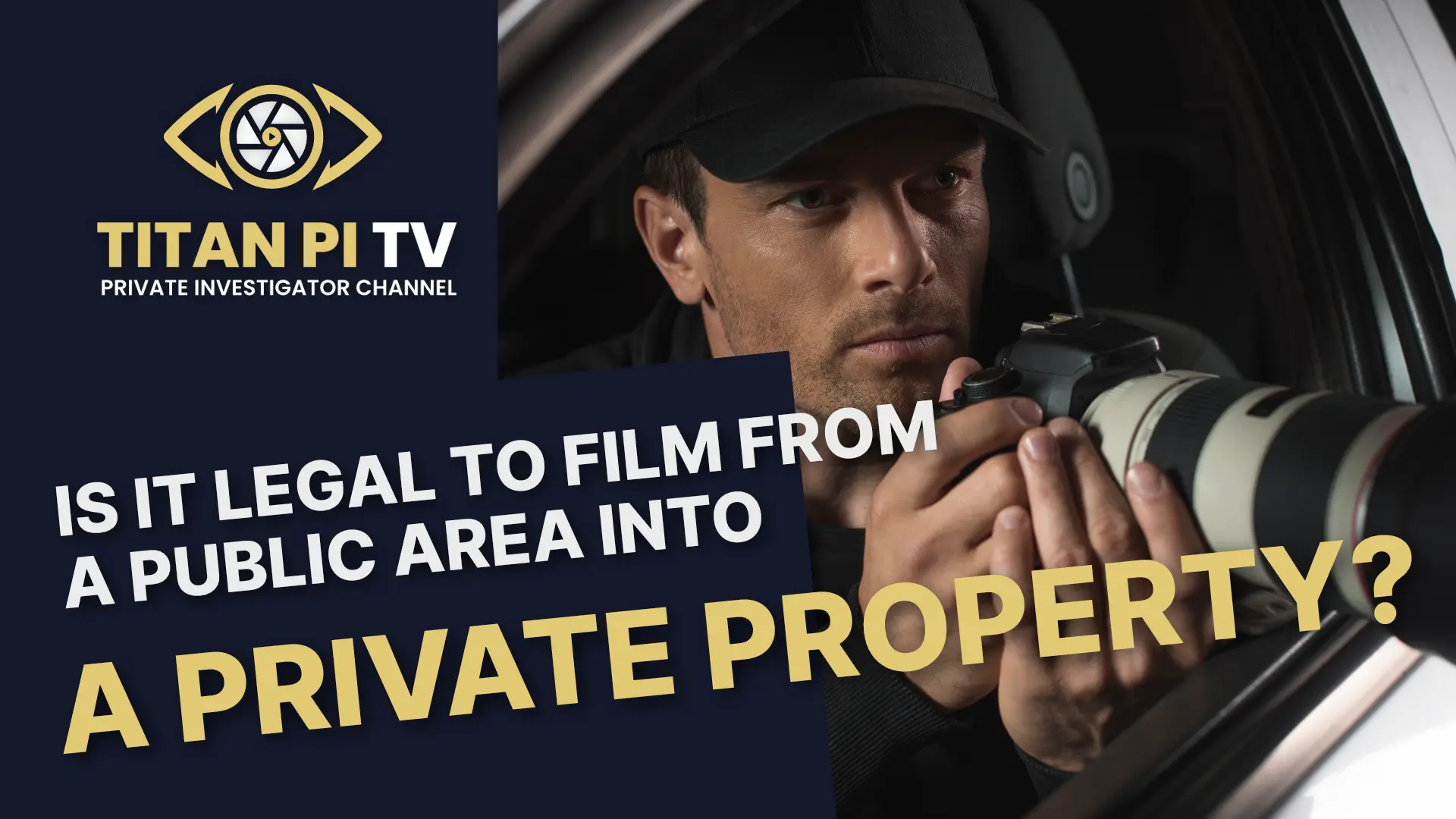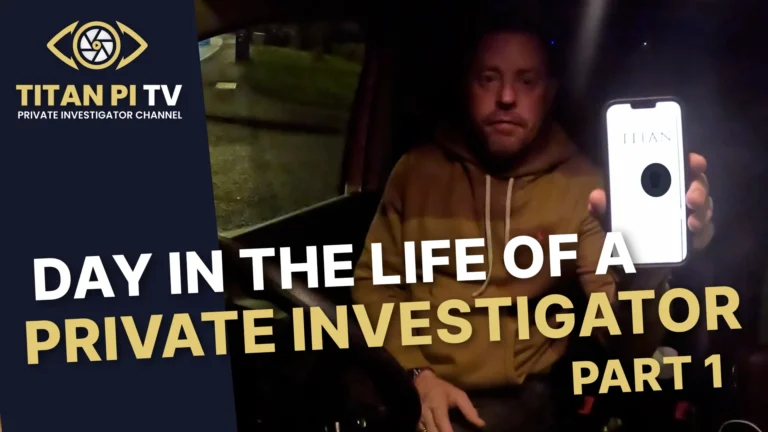Is it legal for a surveillance operative to film from a public area into a private property?
Welcome to Titan PI TV, your trusted source for insightful discussions on the world of private investigations. In this episode, our channel host and industry expert, Simon Henson, delves into a topic that’s often shrouded in legal complexities: “Is it Legal for a Surveillance Operative to Film from a Public Area into a Private Property?” Join us as we explore the fine line between surveillance, privacy, and the law, shedding light on this critical aspect of investigative work.
Navigating the Boundaries of Surveillance:
Simon sets the stage by acknowledging the fundamental tension between personal privacy and the need for surveillance in various contexts, including private investigations. He stresses that striking a balance is essential for respecting individual rights while conducting effective investigations.
Understanding the Legal Framework:
Simon delves into the legal framework that governs surveillance activities, both in public and private spaces. He discusses the importance of adhering to local, national, and international laws, as well as industry-specific regulations, to ensure ethical and lawful investigative practices.
Public vs. Private Property:
Our channel host explores the crucial distinction between public and private property. He clarifies that individuals generally have a lower expectation of privacy in public spaces, where they might be observed by anyone. However, privacy expectations are significantly higher within the confines of private property.
Surveillance in Public Areas:
Simon discusses the legality of filming from public areas, such as streets, parks, and sidewalks, into private properties. He explains that in many jurisdictions, surveillance operatives can generally observe and film activities that are visible from these public vantage points without infringing on privacy rights.
Ethical Considerations and Best Practices:
Simon Henson emphasizes the importance of ethical conduct when conducting surveillance. He encourages operatives to exercise discretion, minimize intrusiveness, and respect individuals’ rights and freedoms even when operating from public areas.
Challenges and Gray Areas:
Simon acknowledges that there can be gray areas in surveillance law, and the specific legalities may vary from one jurisdiction to another. He advises viewers to seek legal counsel or guidance from professionals well-versed in surveillance regulations when navigating complex cases.
Join the Discussion:
Don’t forget to like this video, subscribe to our channel for more enlightening episodes, and hit the notification bell to stay updated. Titan PI TV is your trusted source for industry insights, expert advice, and resources to help you navigate the intricate landscape of private investigations and the legal nuances of surveillance.














